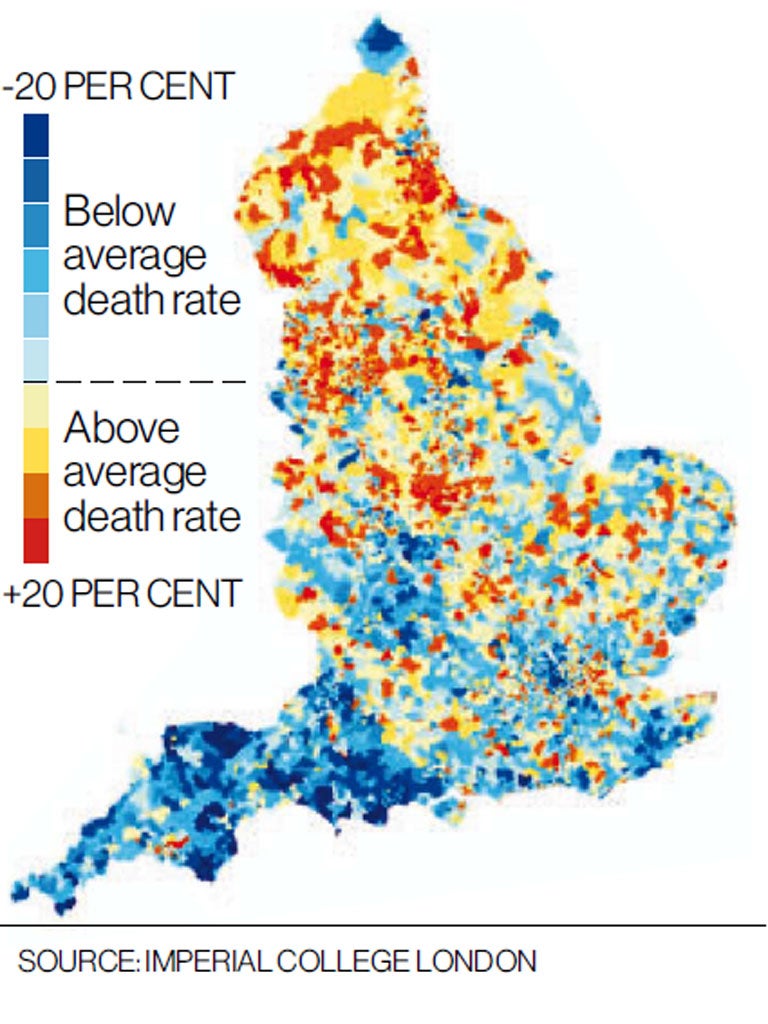Heart disease deaths halve –but only if you live in the South

In one of the most dramatic improvements in the nation's health, deaths from heart disease have halved since the 1980s – but the gains have not been shared equally and the "health gap" between the wealthiest and poorest communities has widened among older people, researchers say.
A map charting the death rate from heart disease and stroke across England by electoral wards shows the stark difference between communities and between the healthy and wealthy South and the poor and sickly North.
Death rates are 20 per cent above average in the poorest wards and 20 per cent below average in the wealthiest wards, among men over 65. A similar disparity is seen for women over 65.
The authors of the study from Imperial College London warn that the health gap could widen further if austerity measures, imposed as a result of the economic crisis, disproportionately affect poor communities. Changes introduced in the NHS, such as switching responsibility for public health to local authorities, could also put some communities at risk of falling behind, they say.
Perviz Asaria, who led the study published in the International Journal of Epidemiology, said: "Both social conditions and the quality of the health service strongly affect heart disease mortality."
"The extraordinary pressure on the NHS to make savings might jeopardise health services, including the crucial role of GPs in poor communities. If people's jobs are less stable, they may be forced to change their diet, or drink and smoke more."
The highest death rates were in Manchester and Liverpool, in parts of Yorkshire, around Birmingham and in deprived areas of London. Outside London, death rates were low in southern England.
Healthier lifestyles such as the reduction in smoking and improvements in diet account for part of the improvement in heart disease death rates.
Improved screening and treatment have also played their part. Millions more people are taking statins to lower cholesterol and drugs to lower blood pressure, reducing their risk.
Clot-busting drugs and procedures such as angioplasty (widening the coronary arteries) have saved thousands of lives from stroke and heart attack.
Mubeen Bhutta, policy manager at the British Heart Foundation, said: "The overall decline in heart disease death rates should be something to celebrate but, worryingly, that improvement has not benefited everyone equally.
"If we're going to make a proper job of tackling England's biggest killer, eradicating inequalities must be at the heart of the Government's new cardiovascular disease strategy.
"The communities that need help the most must not be forgotten and targeted interventions in the poorest neighbourhoods will help address a problem which has dogged this country for decades."
Subscribe to Independent Premium to bookmark this article
Want to bookmark your favourite articles and stories to read or reference later? Start your Independent Premium subscription today.

Join our commenting forum
Join thought-provoking conversations, follow other Independent readers and see their replies